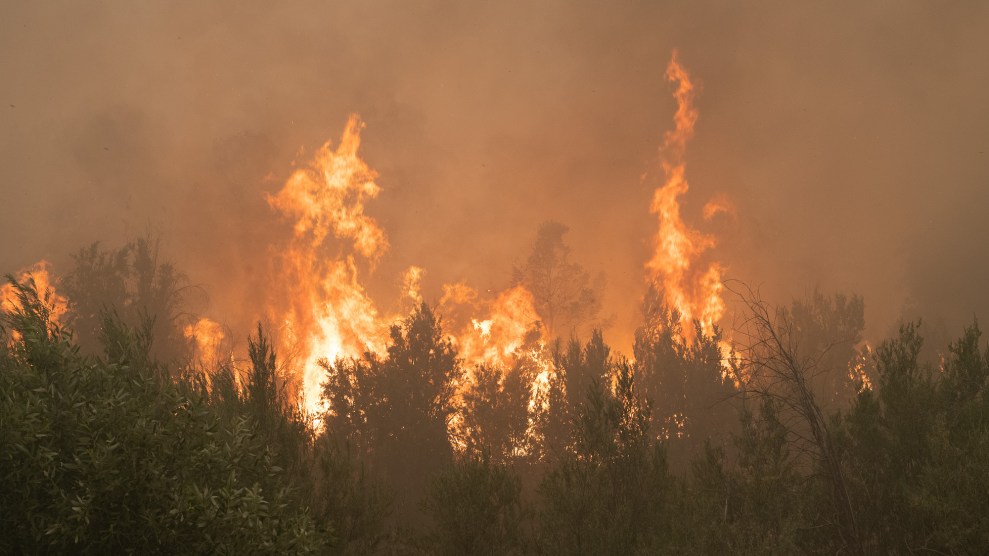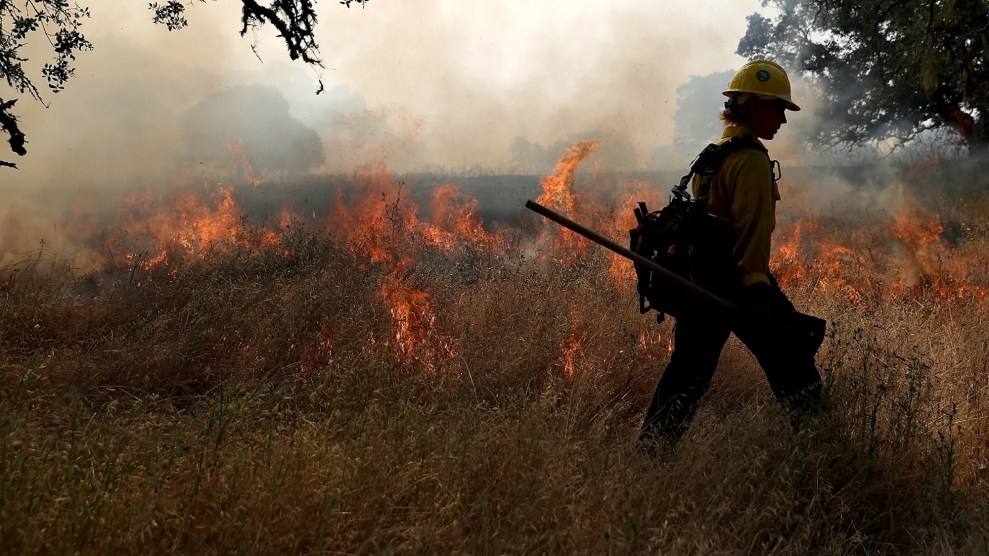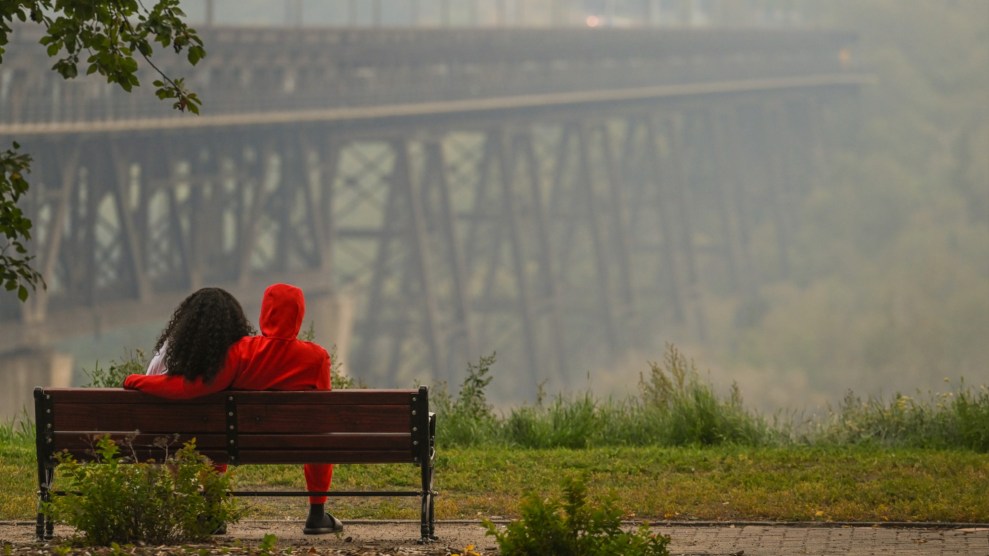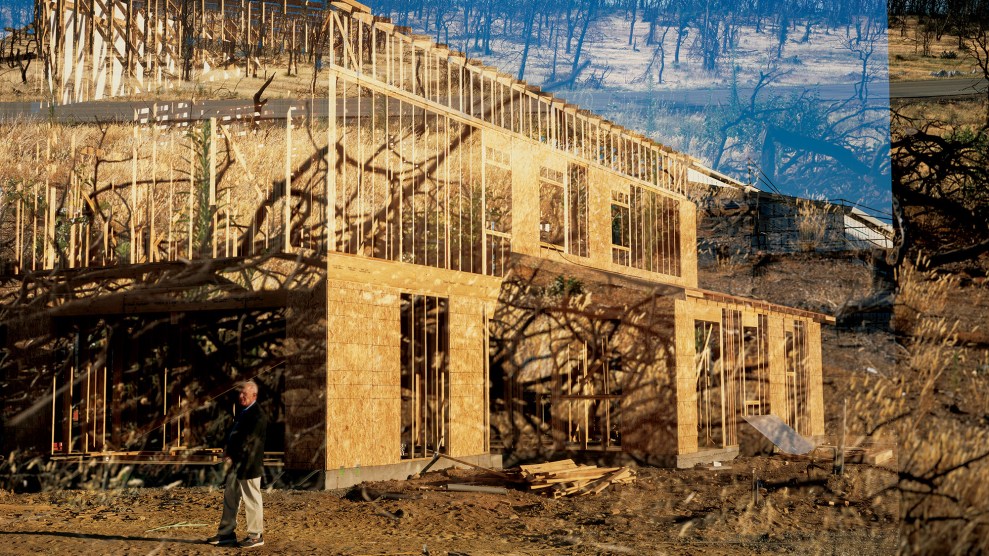
The 2022 McKinney Fire in Klamath River, California. Mark McKenna/Zuma
This story was originally published by the Guardian and is reproduced here as part of the Climate Desk collaboration.
More than 50,000 people have died prematurely in California over a decade due to exposure to toxic particles in wildfire smoke, according to a new study.
Wildfires create smoke containing PM2.5, tiny particles roughly one-thirtieth the width of a human hair that can embed themselves deep in the lungs and enter the bloodstream. The particles have been linked to numerous health conditions and premature death. Previous research has found that the wildfire smoke is exposing millions of people in the US to the harmful pollutant.
In a study published in Science Advances this week, researchers used a new epidemiological model to examine the impacts of wildfire PM2.5 exposure between 2008-2018: a period that includes some of the state’s most destructive and deadly fire seasons. There were at least 52,480 premature deaths attributed to exposure to the inhalable particulate matter from wildfires, and at least $432 billion in health expenses associated with the exposure, according to the study.
“The findings are really a call to action for forest management and climate change mitigation.”
The research is the first to quantify the long-term impacts of chronic exposure to PM2.5 specifically from wildfires, rather than other sources, and has important implications for California, said Rachel Connolly, an author of the study. The results suggest that wildfires are responsible for more deaths and greater economic impacts than previous studies have indicated.
“The findings are really a call to action for forest management and climate change mitigation,” said Connolly, who is the project director at the UCLA Luskin Center for Innovation and also works within the Fielding School of Public Health.
Researchers are only just starting to grasp the impacts of PM2.5 exposure on human health, but the particles can reduce lung function and worsen existing health conditions, including respiratory problems and heart disease.
Particulate matter from wildfires can be more harmful to human health than from other sources, the study reports, and is associated with respiratory illnesses and increased hospitalizations. Other studies have linked exposure to wildfire smoke to increased risks of heart attacks and premature births.
California has seen numerous devastating fires in recent years, including a historically brutal season in 2020 during which 31 people died and skies across the American West turned an eerie orange, exposing 25 million people to toxic air from fires.
Experts and scientists have attributed the increasing intensity of wildfires to years of misguided fire suppression policies, forest management practices and a landscape that has grown hotter and drier amid the climate crisis. The disasters have killed dozens of people, destroyed communities, and exposed millions to wildfire smoke.
People should take action to protect themselves from wildfire smoke, Connolly said, but the findings of this study suggest society needs to invest in forest management, wildland urban interface management and climate change mitigation in order to yield significant public health benefits.
“The importance of wildfire management will only grow in the coming decades as aridification intensifies with climate change and more regions become susceptible to fires,” the authors write in the study.

















